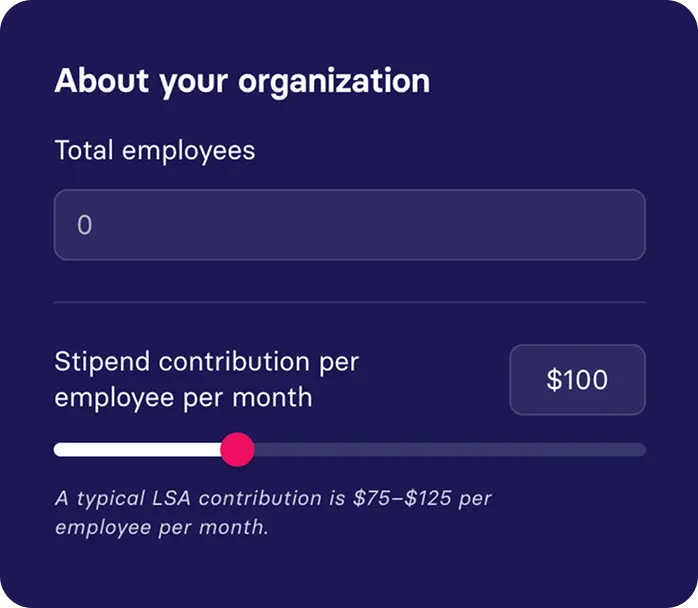In this post
Lorem ipsum dolor sit amet
Lorem ipsum dolor sit amet
Money is part and parcel of the working world. Luckily for employees, there are numerous ways to earn it. Some new hires will receive a sign-on bonus when they secure a role with the company and many are eligible for a performance bonus as they progress.
This guide discusses the employee retention bonus. We’ll explore the benefits of offering them, how they work, and some FAQs if you’re considering them for your valuable employees.
What is a retention bonus?
A retention bonus, also known as a stay bonus, is a sum of money paid to an employee in exchange for their agreement to remain with the company for a specified period. The equivalent of a golden handcuff, this financial incentive offers stability for both the employer and the employee.
What is a typical retention bonus?
An employee retention bonus is entirely customizable depending on the needs and financial position of your company and the employee’s salary. Author, keynote speaker, and Forbes contributor Roberta Matuson states, “Usually, retention bonuses are sizable amounts of money, ranging from 10% to 25% of an employee’s base pay.”
However, some institutions will pay exceptionally large amounts to hang on to their top-tier talent. For example, the U.S. Air Force provides service members in certain specialist careers reenlistment bonuses worth up to $180k, an increase from the previous $100k. Similarly, UBS spent $500 million on retention bonuses following its acquisition of Credit Suisse, in a bid to persuade core staff to stay.
Why offer retention bonuses?
The advantages of offering retention bonus agreements are clear for both employers and employees:
Retention bonuses reduce turnover
No surprises here, but offering financial incentives for employees to remain has a direct impact on company turnover. This stability is vital for maintaining continuity in your business operations and achieving your long-term goals.
Retention bonuses save money
It might sound counterintuitive to spend money to save money, but turnover can be expensive, so reducing it will automatically cut down on the following costs:
- Recruitment, including in-house or agency
- Sign-on bonus
- Screening, shortlisting, interviewing, and candidate communications
- Onboarding and training
- Slow productivity before new hire has ramped up
Retention bonuses preserve knowledge
Long-term employees have critical knowledge, skills, and strong relationships with customers that would otherwise be lost if employees jump ship to another opportunity. Retention pay ensures workers continue to provide consistent and high-quality service.
Retention bonuses enhance morale and engagement
Only 23% of employees worldwide are engaged at work, according to Gallup research. Yet, a financial incentive can act as an extrinsic motivator that activates your employees’ morale and encourages them to stay committed to the company.
Retention bonuses are an enticing financial reward
Compensation is the number one reason to job hunt, according to the Achievers Engagement and Retention report. A bonus can stop the hunt dead in its tracks by providing financial stability and security for employees, with a tangible reward for their contributions.
Retention bonuses provide job security
Retention benefits signal a long-term commitment from the employer, providing employees with job security. They prove that the company is invested in their retention which can reduce job-related stress and uncertainty.
Retention bonuses signal recognition and appreciation
Being selected for a bonus is a huge demonstration that the organization values and appreciates the employees’ contributions to the company.
How does an employee retention bonus work?
Each company can create a custom process for selecting an employee for a retention bonus:
Bonus eligibility criteria
Before dishing out an employee retention bonus, leaders should create a fair and equitable selection process. Start by pinpointing key employees who are crucial to your operations and business success. Your eligibility criteria could include people with:
- Specific roles and responsibilities, for example, high-performing salespeople, IT developers, or operations managers
- Employees in leadership positions who maintain stability throughout your ranks
- Critical skills such as communication, leadership, or technical expertise
- Long-tenure employees who feel part of the furniture and hold significant institutional knowledge
- A particular production or revenue contribution; an employee’s direct impact on the organization’s bottom line
Future tenure
Check whether the employee is willing to remain with the company long enough to receive the bonus—this may be a few months or years. To determine the right length, consider:
- The risk of losing a key employee and the cost associated with recruitment
- Any relevant short- or long-term goals, such as a recent merger or acquisition
- The employee’s notice period and how long it would take to replace them
Contract clauses
Consider any special conditions you may want to attach to your retention bonus agreement. For example, what happens if:
- Your employee wants to leave after accepting the bonus—will they need to pay the money back with interest?
- The company needs to eliminate their position—will you create a new role for them?
- You anticipate your retention bonus scheme could cause conflict within the workplace as every employee wants and expects one—will you require eligible workers to sign a confidentiality agreement?
- A new hire you want to retain has recently received a signing bonus—will you require them to invest a year or two in your organization before offering them a retention bonus?
Retention bonus FAQs
Discuss the following questions internally to help you draft a meaningful retention bonus policy for your HR teams. There are no right or wrong answers, simply the best strategy for your business.
Who is eligible for a retention bonus?
Determine which people are integral to your business success—the names you would struggle without. Consider also how long you expect someone to have worked for you before you offer a retention bonus.
Are retention bonuses negotiable?
Develop an equitable stance on bonus negotiations. Are retention bonuses a one-time offer your employees can either accept or reject, or are they the start of a longer conversation? Companies willing to negotiate should expect to accommodate wiggle room, such as:
- Increasing the amount of the bonus
- Adjusting the retention length
- Offering employee development opportunities as part of the agreement
How are retention bonuses paid?
Typically, companies pay out their retention bonuses in one of the following ways:
- An upfront lump sum payment
- Periodic payments such as quarterly or biannually throughout the contracted retention period
How are retention bonuses calculated?
Depending on the above, you might calculate their retention pay based on a percentage method.
Example: You decide to offer a retention bonus to an IT specialist with 8 years tenure, on a salary of $70,000 per annum. Your retention bonus policy is to offer 15% with a minimum retention period of 3 years. If you pay this upfront, the employee will receive $10,500 as a bonus (15% of $70,000 = $10,500). A periodic payment alternative is to make an annual bonus payment of $3,500 for each of the three years on top of any performance-related bonuses.
Are retention bonuses taxable?
The Internal Revenue Service considers an employee retention bonus taxable income. However, as supplemental wages, the tax implications differ slightly from regular wages. Bonuses beneath $1 million are taxed at a flat rate of 22%, while anything above is charged at 37%.
Retain your best people with Benepass
While an employee retention bonus can be a persuasive sweetener, employee benefits are also an essential part of the compensation package that can be a gamechanger in how workers feel about their employer.
Benepass is a benefits administration platform that entices and retains your people with a range of pre- and post-tax benefits and perks.
Our platform scores 4.9 out of 5 with the G2 software community, including the following category scores out of 10:
- Ease of use: 9.6
- Ease of setup: 9.6
- Quality of support: 9.7
- Product direction: 9.3
Ready to create a retention package that will make your employees feel valued and appreciated? Book a free Benepass demo today.







